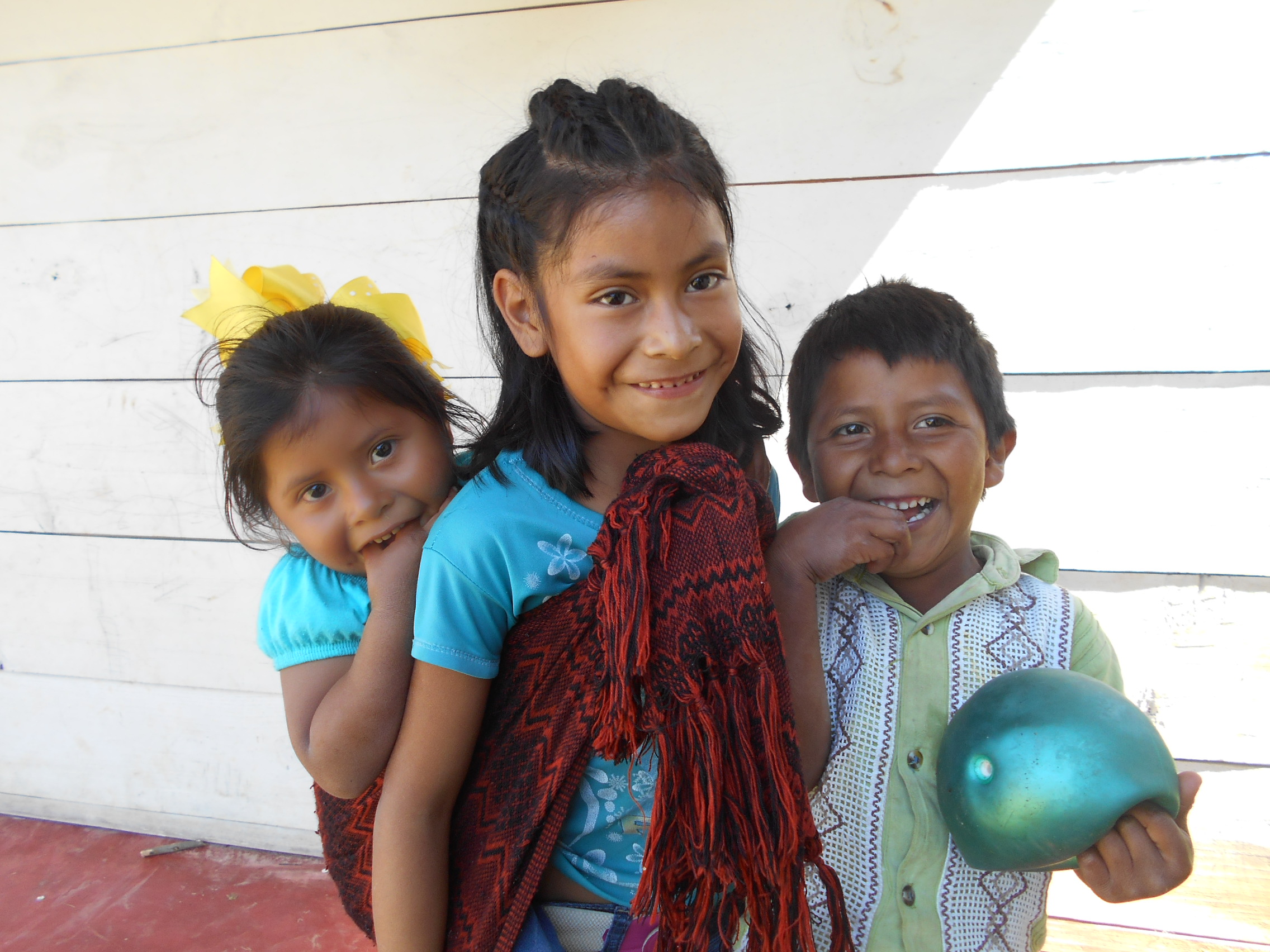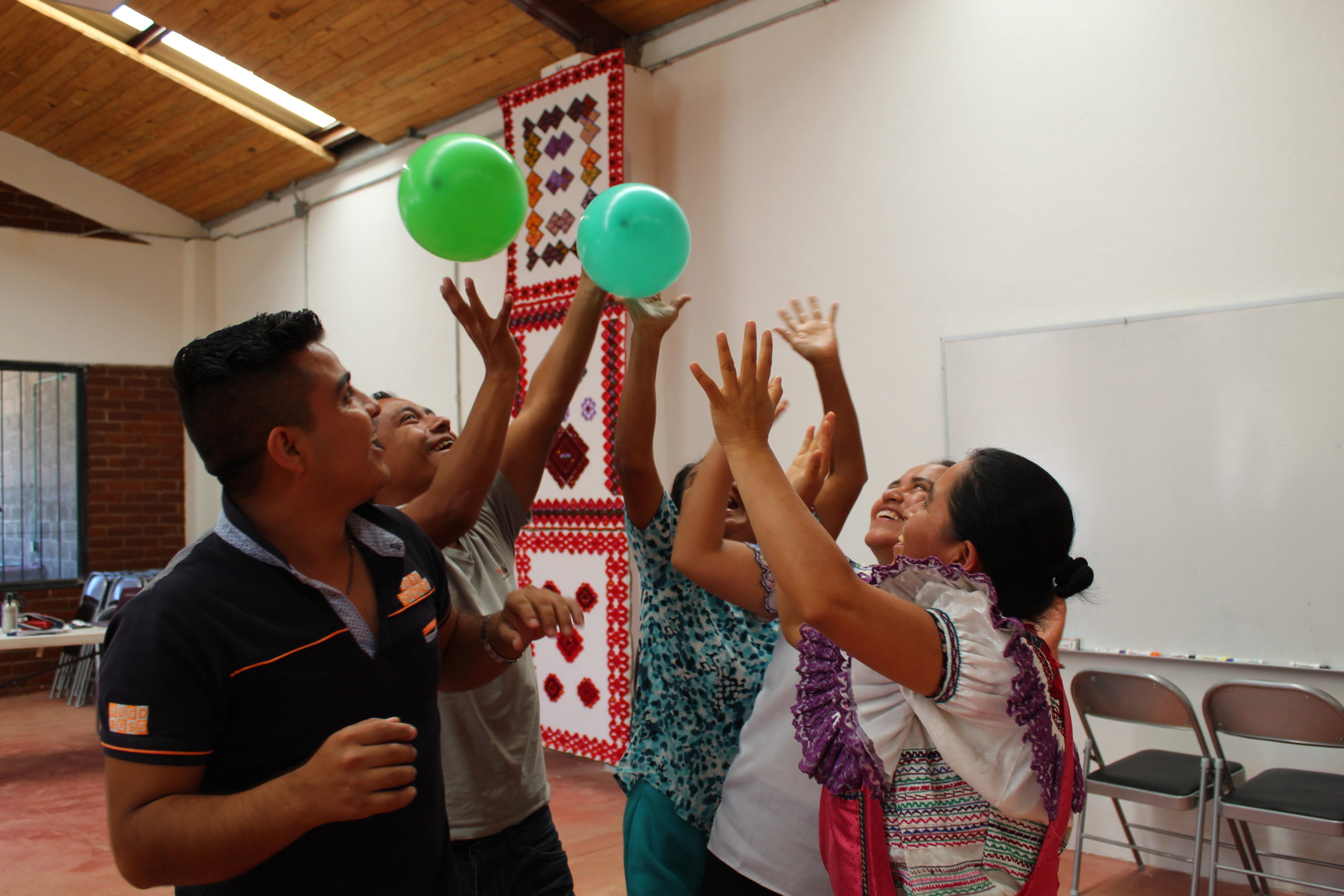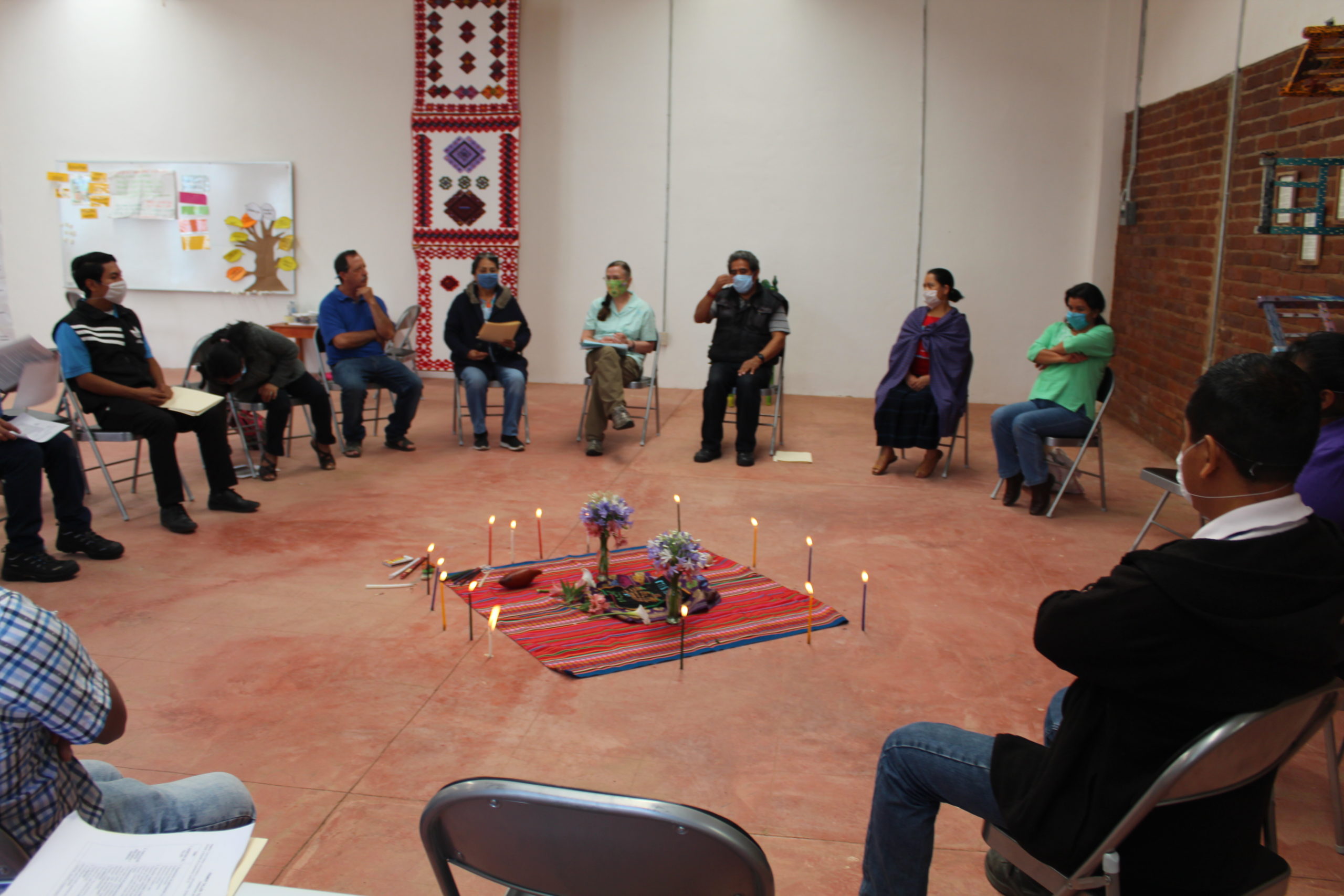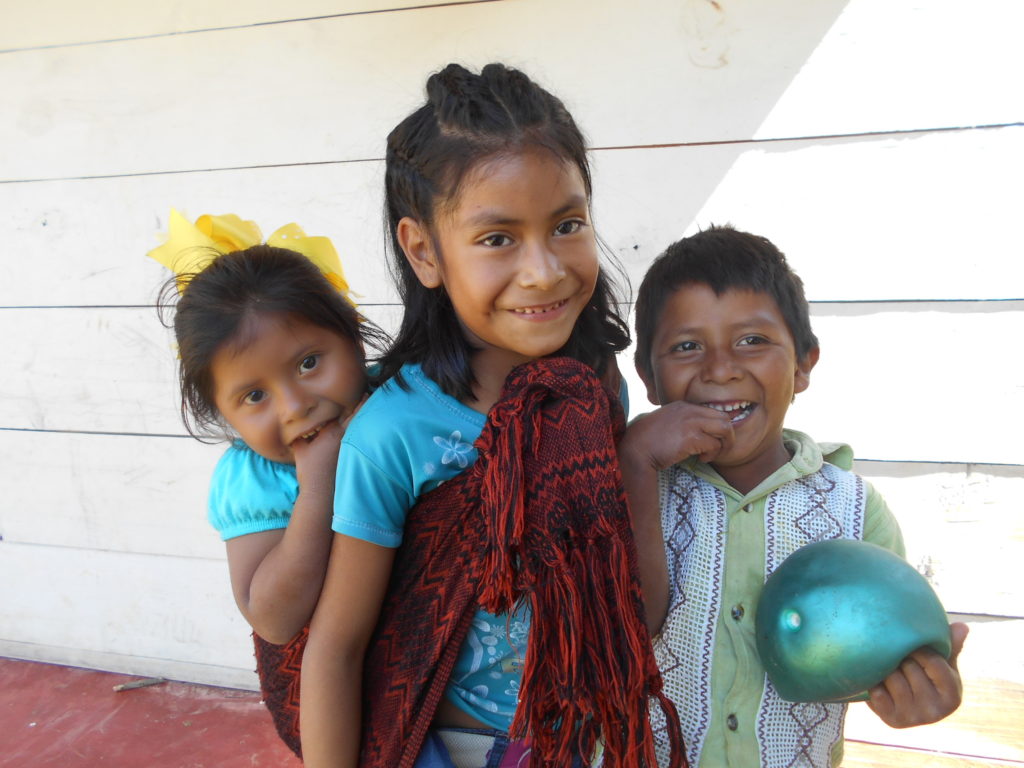Pray with Mexico Sunday, September 20, 2020
 Lectionary Selection: Exodus 16:2-15
Lectionary Selection: Exodus 16:2-15
Prayers for Mexico:
Our God, heart of the sky – heart of the earth,
we who live in the birthplace of corn, who eat thin wafers called tortillas that fall not from the heavens but are a rich gift from mother earth, we ask your Spirit to transform our complaints into a joyous passion for abundant life.
As we complain about conflicts: shape our collective strength, resistance in the face of corrupting forces, and capacity to find just solutions for all.
As we complain about the regulations and limitations due to the pandemic: mold our behavior with consideration for others.
As we complain if there aren’t any tortillas or if there are only tortillas to eat: send us reminders to appreciate the food on our tables, care for our soil and native seeds,
respect for those who toil in the field, the hospital, or the market.
We recognize that complaining is the default response of an oppressed people,
a people whose identity is trapped in the pain of victimhood.
Give us wisdom to find the grains of truth hidden in our complaints and strength to heed your call action: claiming freedom, naming injustice, affirming dignity, and caring for all your creation.
Amen
 Mission Stewardship Moment from Mexico:
Mission Stewardship Moment from Mexico:
Apapachar is a word that comes from the culture of the Nahuatl people of Mexico. It means to give gentle attention or make someone feel special through words or actions: literally “to caress with the soul.” When we receive a special blessing, we say that God has apapachado us.
The pandemic has mainly affected the elderly and shut-ins. Facilitators from the Roots in ruins: hope in trauma program based at the Institute for Intercultural Research and Study in Chiapas, Mexico, suggested a way to reach out to people who might not have access to digital platforms.
 Volunteers make telephone calls, share a Bible reading, listen to personal stories, and pray. Weekly “journal entries” suggest a topic along with Bible verses, questions, mind-body exercises, and meditations. These entries are written by people connected to the Roots in the ruins program from Mexico, Puerto Rico, Honduras, Nicaragua, Chile, and the United States. Callers learn that acompañamiento or “companioning” as described by Alan D. Wolfelt in Companioning philosophy is a way to let people know they are not alone. It is also a two-way blessing. A pastors’ wife from the Disciples Church in San Luis Potosí, Mexico, writes, “I was nervous about calling an elderly woman whom I did not know well. Now God has given me the gift of friendship with a wise woman.”
Volunteers make telephone calls, share a Bible reading, listen to personal stories, and pray. Weekly “journal entries” suggest a topic along with Bible verses, questions, mind-body exercises, and meditations. These entries are written by people connected to the Roots in the ruins program from Mexico, Puerto Rico, Honduras, Nicaragua, Chile, and the United States. Callers learn that acompañamiento or “companioning” as described by Alan D. Wolfelt in Companioning philosophy is a way to let people know they are not alone. It is also a two-way blessing. A pastors’ wife from the Disciples Church in San Luis Potosí, Mexico, writes, “I was nervous about calling an elderly woman whom I did not know well. Now God has given me the gift of friendship with a wise woman.”
Has God blessed you an apapacho, a gentle caress of the soul, this week? Find a way to share that apapacho with someone else!
Prayer and Mission Moment by Elena Huegel
Mission Partners in Mexico:
- Confraternity of Evangelical Christian Churches (Disciples of Christ) (CICE)
- Congregational Christian Churches of Mexico
- Disciples of Christ Church in Mexico (IDCM)
- Institute for Intercultural Study and Research (INESIN)
- Las Memorias Hostel
- Melel Xojobal
- Mexican Roundtable
- International Service for Peace (SIPAZ)
- Southwest Good Samaritan Ministries
- Theological Community of Mexico (TCM)
More information on Mexico: https://www.globalministries.org/mexico
Global Ministries Mission Co-worker in Mexico:
Elena Huegel serves with the Intercultural Research and Studies Institute (INESIN) in Mexico. Her appointment is made possible by your gifts to Disciples Mission Fund, Our Church’s Wider Mission, and your special gifts.
Make a gift that supports the work of Elena Huegel
The Institute of Intercultural Study and Research is proud to announce the publication in Spanish of Trees and Love – While They Have Roots, They’ll Have Flowers: Educational Strategies to Nourish Resilience, Dignity, and Hope (Árboles y amores, mientras tengan raíces, tendrán flores: Estrategias educativas para nutrir la resiliencia, dignidad y esperanza). This popular education resource has been developed by facilitators in the Roots in the Ruins: Hope in Trauma (Retoños en las ruinas: esperanza en el trauma) program and other educators representing Global Ministries partners in:
- Mexico (The Institute of Intercultural Study and Research and the Congregational Christian Churches of Mexico)
- Chile (The Pentecostal Church of Chile and the Shalom Center)
- Paraguay (The Christian Church, Disciples of Christ of Paraguay and the Jack Norment Camp)
A paragraph from the introduction states, “There is no greater nor more fragile privilege than the task of forming people through a pedagogical process, whatever this may be. We hope that the educational strategies in this book might support the creation of safe spaces where everyone, facilitators and participants alike, learn and grow together like trees in a healthy forest, nourished by the sun of love, the air of dignity, and the water of hope and with our roots firm and resilient in the storms of life.”
The book includes educational strategies such as group and individual learning activities, games, art, music, theater and storytelling exercises, meditation and reflection tools, outdoor connectors, and conflict transformation and resilience-building skills to be used in churches, community organizations, camps, schools, and other learning spaces.
El Instituto de Estudios e Investigación Intercultural, A.C. tiene el privilegio de anunciar la publicación del libro Árboles y amores: mientras tengan raíces tendrán flores (Estrategias educativas para nutrir la resiliencia, dignidad y esperanza). Este recurso de la educación popular ha sido desarrollado por facilitadores en el programa Retoños en las ruinas: esperanza en el trauma y otros educadores representando algunos contrapartes de Ministerios Globales (Iglesia Cristiana, Discípulos de Cristo de USA y Canadá e Iglesia Unida de Cristo de USA) en
- México (El Instituto de Estudios e Investigación Intercultural, A.C. y las Iglesias Cristianas Congregacionales de México)
- Chile (La Iglesia Pentecostal de Chile y el Centro Shalom)
- Paraguay (La Iglesia Cristiana, Discípulos de Cristo de Paraguay y el Campamento Jack Norment)
Un párrafo de la introducción dice: “No hay privilegio más grato ni más frágil que la encomienda de formar personas en un proceso pedagógico, cualquiera que sea. Esperamos que las estrategias educativas de este libro puedan apoyar la creación de espacios seguros donde todos y todas, facilitares y participantes, aprendamos y crezcamos juntos como árboles en un bosque sano, nutridos con el sol del amor, el aire de la dignidad y el agua de la esperanza y con nuestras raíces firmes y resilientes ante las tormentas de la vida.”
Este libro incluye estrategias educativas tales como: actividades para el aprendizaje grupal e individual, juegos, ejercicios de arte, música, teatro y cuentacuentos, herramientas de meditación y reflexión, conectores al aire libre y habilidades para la transformación de conflictos y resiliencia que pueden ser usadas en iglesias, organizaciones comunitarias, campamentos, escuelas y otros espacios de aprendizaje.

